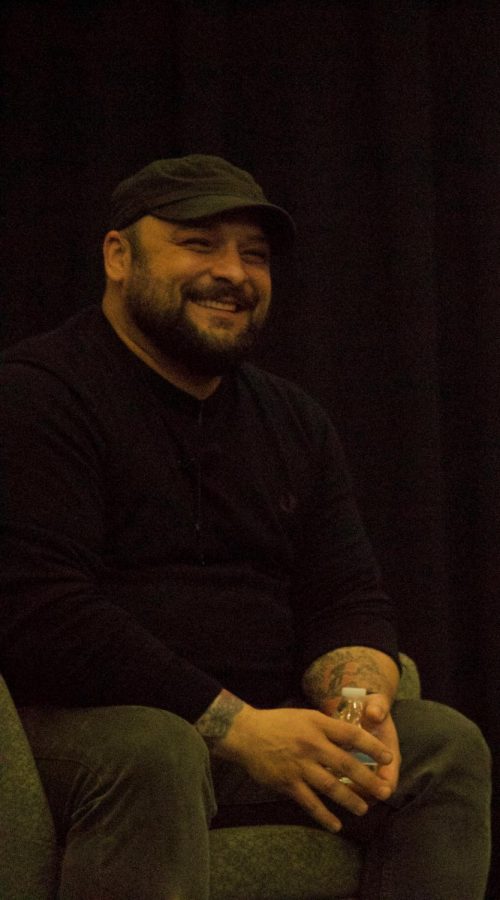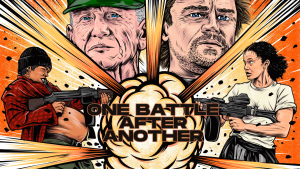Former white supremacist shares story of reformation
April 12, 2018
Inadvertently neglected by his hard-working parents and bullied on grounds of prejudice, Christian Picciolini was a child in search of identity, community and purpose. His search came to an end at age 14, when he was recruited by a member of the Chicago Area Skinheads.
Presented by CSUSM Arts & Lectures on April 3, Picciolini shared his experience of delving into the white supremacist movement and how he got out of it, with the CSUSM community. After briefly explaining his youth, Picciolini began to share his account of rising to pow- er and becoming the leader within his skinhead group.
“I began to recruit people based on what I learned. I looked for vulnerable young people who looked like they didn’t have a lot, who had voids in their life,” said Picciolini. Outside of normal recruiting, he began to utilize music as a means of indoctrination. Eventually, Picciolini found himself performing supremacist theme music in Germany for around 4,000 skinheads. After the performance, attendees ravaged a nearby town, hurting residents and destroying property.
After the concert, Picciolini said he realized the weight and consequences of his words and the ideology they supported. “I still wasn’t brave enough to walk away… It was the only identity, the only community and the only purpose in life that I knew,” he said.
Years passed and Picciolini married, had two children and a record store. Fatherhood began challenging his old identity and community. His wife wasn’t part of the movement and the last connection that remained to his past was the music he sold at his record store which primarily consisted of white power music.
As Picciolini began meeting customers, he gained insight into the lives of the people that he originally believed to be his enemy. His perception of who he was, changed, and the time came to close the store. The closing of his store brought the loss of financial support for his family, causing the separation of his wife and children.
After some tough times, a friend suggested Picciolini to apply for the International Business Machines Corporation (IBM) and to Picciolini’s surprise, he got a position. Picciolini then began to pay attention towards people that used to be like him.
He created Free Radicals, a system that allowed a team of former extremists (including Picciolini himself) to help people disengage from violent extremism. The system provides job training, tattoo removal, life coaching and therapy.
A common tactic Picciolini used when reforming extremists/supremacists was introducing them to the people they detested, which often resulted in connection and humanization of the other.“What helped me and every person I worked with was empathy and compassion,” concluded Picciolini.







